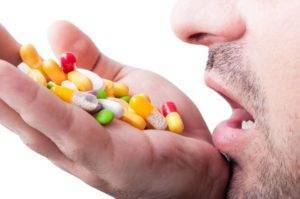
Today, prostatitis is one of the most common diseases of men. This is not surprising. No single representative of the stronger sex is immune from its development. Pain, discomfort, problems with potency and urination - this is a small part of what threatens the patient.
Is there a cure for prostatitis, a quick cure? What effective remedies for this disease does the pharmaceutical industry offer? How to choose the best prostate medicine? Let's try to deal with these issues. And let’s start with why prostatitis appears.
Reasons for the development of the disease
Prostatitis is a disease of the prostate gland associated with its inflammation.
As a rule, the causes of the development of the disease are:
- bacterial infections;
- allergic reactions;
- Immune system dysfunctions, accompanied by a decline in immunity;
- prolonged exposure to cold, stressful situations, unhealthy diet;
- hormonal changes;
- disorders of blood circulation in the organ, which are the result of certain diseases, for example, ischemic heart disease or atherosclerosis;
- prolonged sexual abstinence;
- intentional prolongation of sexual intercourse.
Remedies for prostate
It is quite natural that the question of what is the most effective cure for prostatitis in men worries all those who have faced this disease. However, there is no definitive answer to it. This is explained by the fact that the disease can develop under the influence of many facts, and therefore, any pill for prostatitis simply does not exist.
Treatment of prostatitis is conventionally divided into three directions, complementary to each other and including:
- etiotropic therapy;
- pathogenetic therapy;
- symptomatic therapy.
Let's examine these guidelines in more detail and analyze more effectively for prostate.
Etiotropic therapy
Etiotropic therapy allows you to eliminate the cause of the disease. The development of prostatitis, as a rule, is associated with bacteria, and therefore, in this case, mainly used antibiotics, prescribed by a doctor, depending on the clinical picture.
Pathogenetic therapy
Pathogenetic therapy complements that of etiotropic, if the latter means against prostatitis are clearly insufficient. For this purpose, in this case can be used:
- alpha - blockers;
- bioregulatory peptides;
- herbal products;
- means that they improve blood circulation.
Symptomatic therapy
Symptomatic treatment allows you to eliminate the symptomatology of the disease that is bothering the patient. The vast majority of drugs in this group belong to the category of rapid action, and therefore, are mistakenly considered the best.
Drugs of this type include:
- non-steroidal anti-inflammatory drugs (NSAIDs) with analgesic and antipyretic effects;
- hormonal preparations;
- antispasmodics;
- sedatives that have a relaxing, calming and somewhat analgesic effect.
Attention!Medications should be prescribed exclusively by a physician. Self-medication in the treatment of prostatitis is unacceptable.
Microclips, instillations and suppositories
In addition to pills and injections, for the prostate are prescribed:
- Installations (fillings)
- - procedures involving the pouring of a special medicine into the opening of the urethra (the procedure is performed by a urologist, and the volume of medicine being poured, as a rule, does not exceed 5 ml);
- microclimate; qirinj
- .
Traditional medicine
In the vast majority of cases, traditional medicine is an excellent adjunct to medications prescribed by a urologist.
In this case, the following recipes are usually used:
- Recipe 1. When treating prostatitis, take one or two balls three times a day.
- Recipe 2.Forty grams of propolis are poured with two hundred milliliters of rubbing alcohol. One tenth of the resulting extract is mixed with two grams of cocoa. A candle is formed from the resulting mixture, which is then used rectally.
Furthermore, parsley root, mushrooms, celandine, asparagus and black thorn juice are used in the treatment of prostatitis.
Attention!Before using folk remedies, you should consult your doctor.
Despite the fact that it is quite easy to find a quick-acting cure for prostatitis (inexpensive drugs created to treat symptoms that are painful for the patient), a doctor should prescribe treatment. Only he will be able to determine the stage of the disease and prescribe the most effective therapeutic regimen.























